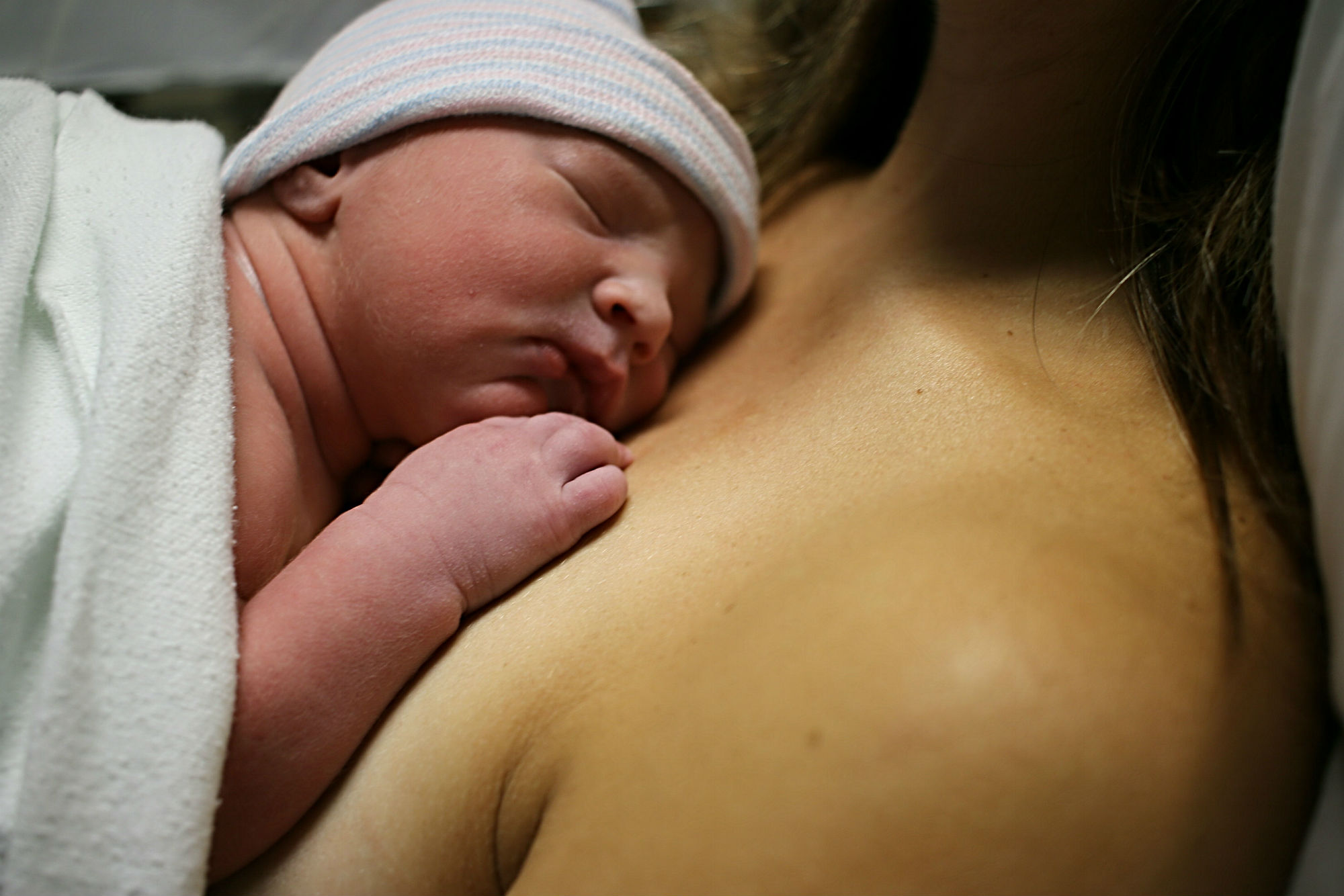
Prior to giving birth to my son, my husband and I did all the things to get ourselves ready for having a baby, including childbirth classes where we learned about the different stages of labor and what would happen in the delivery room. But despite our preparation, there are some things you can’t learn in a class, and some of what I experienced during birth was really unexpected.
If you don't want to be caught off-guard like I was, here are the five most surprising things no one warned me about.
- Induction can mean more than medication
Going into childbirth, I knew that Pitocin could speed up contractions and oftentimes could make contractions feel more intense. However, what I didn’t know is that induction can mean other interventions besides medication. In my case, it meant a Foley balloon catheter was inserted into my uterus to open the cervix and help me dilate. Yup, it was about as comfortable as it sounds.
At first, I was happy that I was being induced “naturally” without medication, but the balloon insertion hurt more than anything else that happened during the birthing process. My movements were also somewhat restricted while the balloon was in, and I had to use a bedpan to pee. Needless to say, I was pretty happy when hours later, the balloon had done its job of dilating me to 4 centimeters and I finally got to take it out and start on Pitocin.
- Epidurals are painful to insert … but well worth it.
Another surprise related to pain levels was how much getting the epidural hurt. When reading about other women’s experiences, it seemed like the consensus was most felt “pressure” upon insertion, but the pain was tolerable, especially compared to the contractions. Everyone is different, but for me, the epidural hurt almost as much as the balloon.
That said, I would 100 percent get an epidural again. The relief I felt once the epidural started working was worth the discomfort and I spent the rest of the time dilating peacefully.
The post-birth process doesn't just include the delivery of the placenta.
- Delivery doesn’t always happen on your baby’s schedule.
I assumed that when it was time to push and deliver my baby, the doctor on call would come to my room and help me get the baby out. But in the busy, overcrowded New York City hospital where I delivered, that didn’t happen. After being completely dilated for a few hours, the urge to bear down and push was overwhelming. I kept telling the nurse I needed to push and she told me I had to wait until the doctor could come.
The problem was there were only two doctors on staff that night, and the one assigned to me was busy delivering other babies. In fact, when she finally did come in and I started to push, she had to take several breaks to go attend to other women. Suffice it to say, this experience was incredibly frustrating not to mention highly uncomfortable while I lay in bed with a baby halfway down my pelvis waiting to come out.
- The post-birth process takes longer than you think.
The post-birth process doesn't just include the delivery of the placenta. If you have an episiotomy or tear, stitches are very likely, and I was unprepared for how long and involved that process was. My epidural had basically worn off at that point, and it took the doctor 45 agonizing minutes to close up my second-degree tear. I was literally crying in misery the first few minutes after giving birth, rather than enjoying the baby that was on my chest. Luckily, the anesthesiologist came quickly to top me off and, after that, the pain subsided and I could return my attention to the human being who I just pushed out of my body.
- Breastfeeding may not work automatically.
I took a breastfeeding class and just assumed I would be able to breastfeed successfully. I never really considered that breastfeeding could be challenging, so I was surprised and frustrated when my baby didn’t take to the breast right after birth.
In fact, we never really could get the latch right, despite lots of help and support from lactation consultants and my doula. So, now I'm exclusively pumping. I was disappointed that breastfeeding didn’t work out for us, and part of me felt like a failure.
There's a lot of pressure on women to “not give up” and get it right with breastfeeding, but the truth is it doesn’t always work for everyone. Women should feel free to choose what works for their family. I really wish someone had told me beforehand how normal all this was and that it's not the end of the world if it doesn't turn out the way you planned.



